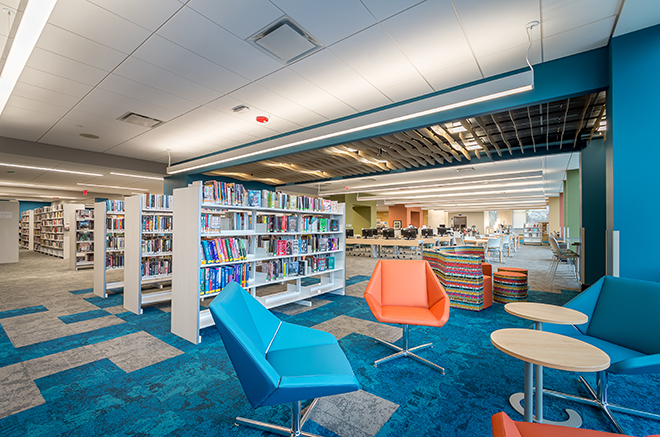Library Expansion and Upgrades

• New RFID-Enabled Libraries Opening:Several new libraries are being constructed with RFID systems integrated from the ground up.For example,a state-of-the-art library in a major European city recently opened its doors.It features an advanced RFID infrastructure that allows for seamless self-checkout and check-in of books,DVDs,and other media.The library also uses RFID for real-time inventory management,ensuring that staff can quickly locate materials and maintain accurate records.
• Upgrading Existing Libraries:Many existing libraries are undergoing renovations to incorporate RFID technology.A university library in Asia is in the process of upgrading its entire collection with RFID tags.This will enable students and faculty to self-checkout materials more efficiently,reduce the workload on library staff,and improve the overall user experience.The library is also planning to use RFID for asset tracking of its valuable special collections.
Innovative RFID Applications in Libraries
• Smart Shelves:Some libraries are installing smart shelves equipped with RFID antennas.As books are placed on or removed from the shelves,the RFID system automatically updates the library's catalog.This helps maintain accurate shelving records and makes it easier for patrons to find materials.Additionally,smart shelves can alert staff if a book is misplaced,ensuring that items are always in their correct locations.
• Mobile RFID Carts:Library staff are using mobile RFID carts to streamline the check-in and sorting process.These carts are equipped with RFID readers that can quickly scan multiple items at once.Staff can use the carts to check in returned materials,sort them by category or location,and even update the library's inventory system on the go.This increases efficiency and reduces the time it takes to process returned items.
RFID and Library Services
• Enhanced User Experience:Libraries are leveraging RFID to enhance the user experience.A public library in North America has implemented RFID self-checkout kiosks that allow patrons to check out materials in less than a minute.The kiosks are user-friendly and can handle multiple items simultaneously.This has led to shorter wait times and increased satisfaction among library users.
• Improved Inventory Management:With RFID,libraries can conduct more frequent and accurate inventory counts.A library system in Europe reported a significant reduction in missing and misplaced items after implementing RFID.The ability to quickly scan entire sections of the library has made it easier to identify discrepancies and take corrective action,ensuring that the library's collection is up-to-date and accessible to patrons.
RFID and Library Security
• Theft Prevention:RFID tags play a crucial role in preventing theft in libraries.When a tagged item is removed from the library without being properly checked out,an alarm is triggered at the exit gates.This has been effective in deterring theft and protecting the library's valuable resources.Some libraries are also using RFID to track the movement of high-value items within the library,providing an additional layer of security.
• Integration with Security Systems:Libraries are integrating RFID systems with their existing security infrastructure.For example,a library in Australia has combined RFID with CCTV cameras and access control systems.If an RFID alarm is triggered,the security cameras automatically focus on the relevant area,and access to certain parts of the library can be restricted until the situation is resolved.This integrated approach enhances overall library security.
Collaborative RFID Initiatives
• Interlibrary Loan Improvements:Libraries are collaborating on interlibrary loan(ILL)programs using RFID.A consortium of libraries in a South American country has implemented a shared RFID system for ILL.This allows for faster and more accurate tracking of materials as they are transferred between libraries,reducing delays and improving the availability of resources for patrons across the consortium.
• Regional RFID Networks:In some regions,libraries are forming RFID networks to share resources and expertise.A group of libraries in a European region has established a shared RFID database and support system.They work together to purchase RFID tags and equipment in bulk,reducing costs.They also share best practices and training materials to ensure that all libraries in the network can effectively utilize RFID technology.
Contact: Katy
Phone: 15889648395
Tel:
Email: katy@kdbusinessltd.com
Add: Room 502c 5/f ho king commercial centre 2-16 fa yuen street, HK.